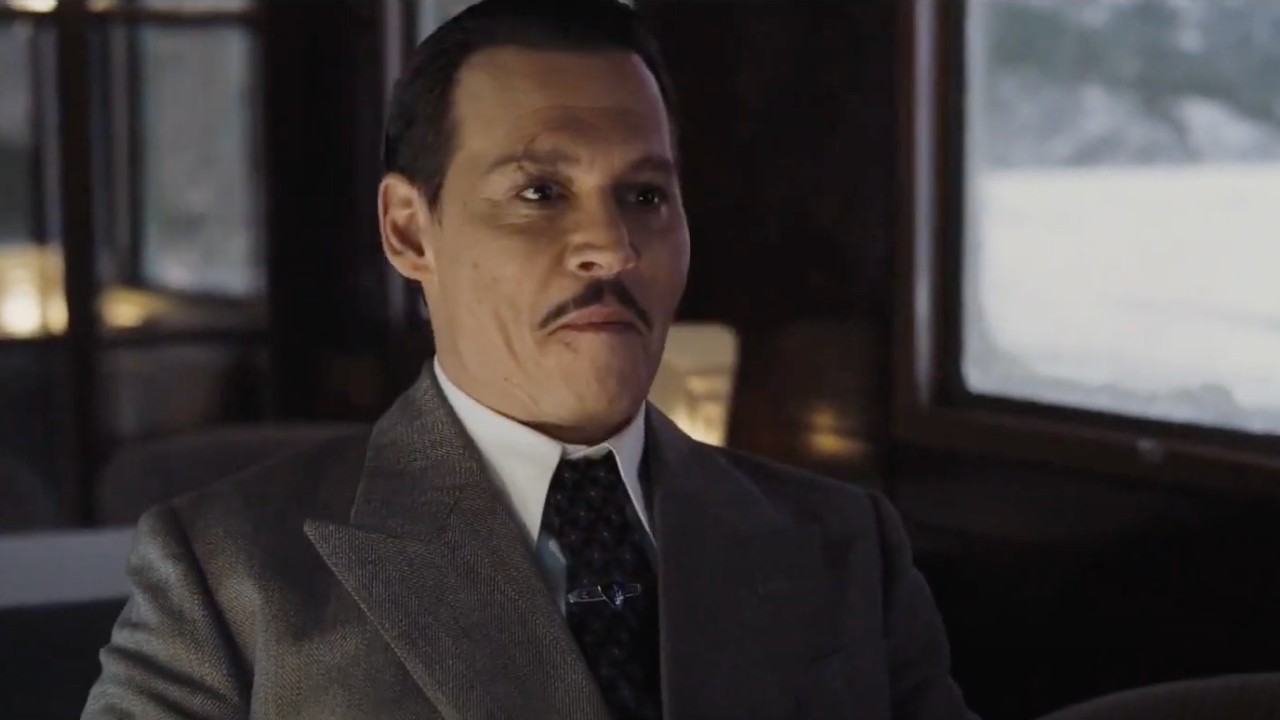It will take individual members of the moviegoing audience only a few minutes to decide whether or not David O. Russell’s Amsterdam is a film that is “for them.” A manic tone is established from the outset as we are introduced to Christian Bale’s Burt Berendsen, a Hunter S. Thompson-esque doctor and World War I veteran with a glass eye who operates a shady medical practice helping out fellow veterans in 1933 New York City. Voiceover from Burt quickly ushers us through his life and work before catapulting the character to a meeting with his best friend, John David Washington’s Harold Woodman, a fellow veteran and attorney who proceeds to roll out a dead man in a box (Ed Begley Jr.) and introduce the corpse’s grieving daughter (Taylor Swift), who is certain that her father was murdered.
Quippy zaniness is the keystone of the madcap adventure, and that voice is relentless even as the film veers towards some of the most consequential subject matter in modern history. If it’s not your thing, you’ll check out immediately, but those who get onboard will find an entertaining, albeit overcooked mystery that is enhanced with what feels in the moment like a seemingly endless ensemble of talented actors who enter the picture with each new plot development.
The aforementioned dead man in a box is identified as General Bill Meekins, who not only has a close history with Burt and Harold (technically he was the one who introduced them), but was supposed to be the main speaker at a benefit that the two men are coordinating. They believe Meekins’ daughter’s claims, which then almost immediately results in more murder… and then, indicative of the movie’s weirdness, everything goes into flashback mode. We first see how Burt first met Harold during World War I in France 1918, but then we learn how the duo met Valerie Voze (Margot Robbie), an eccentric nurse who patches them up and saves their lives after they are nearly killed on the battlefield.
Amsterdam's manic style is matched well with an engaging mystery.
Amsterdam sports a lot of “stranger than fiction” energy (it opens with a non-committal based-on-a-true story title card reading “A lot of this really happened”), and it more than occasionally feels like it’s trying to do too much – such as with Valerie’s avant-garde artistic sensibilities making sculpture from shrapnel, and the trio coming up with a “nonsense song” comprised of random French phrases. It takes quirkiness into the red, but the film works because it’s all tied to an engaging and propulsive mystery.
Once the movie bounces back from the flashback – with Burt, Harold and Valerie’s lives becoming intertwined while they live together in the titular city after World War I – Amsterdam establishes proper stakes and keeps the narrative moving with Burt and Harold finding clues that get them closer to discovering the truth of what happened to General Meekins. It never gets particularly complex, but it also never gets stupid, and each progression in the plot keeps you wondering about what’s coming next.
Part of the fun of Amsterdam is wondering what famous face will show up next.
Said curiosity is both driven by the desire to know the answers to the movie’s biggest questions, as well as David O. Russell’s special brand of stunt casting. If I could make one particular recommendation going into Amsterdam, it would be that you should avoid looking at the film’s full cast list (and I’m actually going to stop naming names in this review beyond those I have already mentioned). Practically every line is delivered by actors who are headlining movies released throughout the year – and none of them are shortchanged. Each has a memorable part to play and a standout personality to go with it.
Of course, anchoring the whole thing is the trio headlining the adventure. Given that Christian Bale, John David Washington and Margot Robbie have proven themselves as three of the most consummate performers working today, their success should inspire little surprise, but that makes it no less wonderful. Chemistry in the triumvirate is essential to the story that David O. Russell is telling, and theirs is effortless and palpable. Between the three, Bale is given the most to work with and delivers one of his best comedic performances – rounding out his David O. Russell trilogy after making The Fighter and American Hustle – but they are all given memorable lines and moments from the writer/director’s script.
Their individual characters’ eccentricities and choices in their performances mesh impressively well together, and the movie clicks into high gear when they are all together – first in the World War I flashback, and then in 1933 when Burt and Harold are inadvertently reunited with Valerie while trying to solve the murder mystery.
Amsterdam walks a narrow tightrope line of being too much, and there are moments where knees bend and arms flail for balance, but it does stay upright and put on a show in the process. It has a distinct voice, an entertaining story to tell and a well-used phenomenal cast, which amounts to a fun cinematic experience.

Eric Eisenberg is the Assistant Managing Editor at CinemaBlend. After graduating Boston University and earning a bachelor’s degree in journalism, he took a part-time job as a staff writer for CinemaBlend, and after six months was offered the opportunity to move to Los Angeles and take on a newly created West Coast Editor position. Over a decade later, he's continuing to advance his interests and expertise. In addition to conducting filmmaker interviews and contributing to the news and feature content of the site, Eric also oversees the Movie Reviews section, writes the the weekend box office report (published Sundays), and is the site's resident Stephen King expert. He has two King-related columns.











